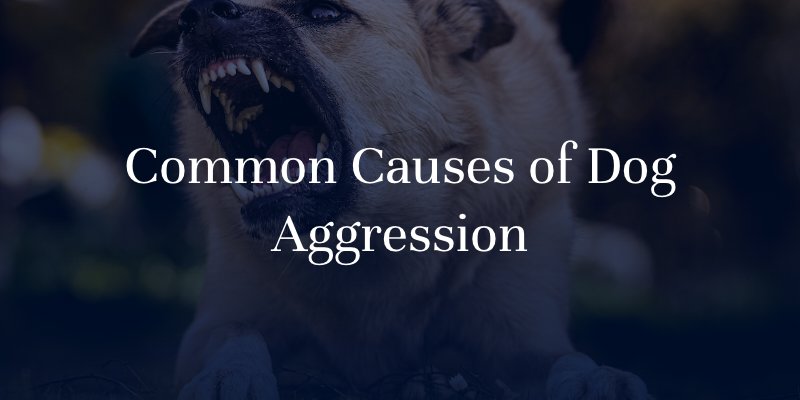Dogs are an incredibly popular pet in Washington state, and for good reason: they are often loyal, affectionate, and make great companions. As much as we love dogs, they can sometimes exhibit aggressive behavior. Aggression in dogs is a serious matter that can lead to injuries and even fatalities.
As a responsible dog owner or someone who frequently encounters dogs, it is important to know how to respond to signs of aggression in dogs to prevent dog bites. By understanding the reasons behind aggressive behavior, you can reduce the risk of dog bites and ensure a safe environment for both humans and dogs.
Common Causes of Dog Aggression

Dog aggression can be caused by various factors, such as fear, territorial behavior, pain or illness, lack of socialization, and genetic predisposition.
- Fear-based aggression is the most common type of aggression in dogs, which can be triggered by loud noises, unfamiliar objects, or other animals.
- Territorial aggression, on the other hand, can occur when a dog perceives a threat to its territory or food.
- Pain or illness can also cause dogs to become aggressive as they may lash out to protect themselves from any perceived threats.
- Lack of socialization, particularly during the critical period of puppyhood, can also lead to fear-based aggression or defensive behavior.
- Some breeds are genetically predisposed to aggression due to their history of being bred for certain traits, such as guarding or fighting.
Signs of Aggression in Dogs
To determine if a dog is nervous to the point of being aggressive, it’s important to look for certain body language and signs. Understanding the body language and behaviors of dogs can help you anticipate aggressive behavior and stop it before it escalates.
Common signs of aggression in dogs may include:
- Stiff body posture
- Pinned-back ears
- Growling
- Baring teeth
- Snarling
- Biting
The Best Ways to Respond to Dog Aggression
If your dog exhibits signs of aggression, it is important to take action. First, identify the underlying cause of the aggression and make a note of when it occurs. Consult with a veterinarian to determine if there are any underlying medical conditions.
If there are no medical issues, consider consulting with a professional dog trainer or behaviorist to create a management plan. Medication may be necessary in some cases to help manage the problem.
You may also want to implement positive reinforcement techniques to teach new behaviors and reduce aggressive responses. Avoid punishment, as it may escalate aggression. Consider enrolling your dog in a specialized training program with experts who can provide targeted guidance and support.
Finally, it’s important to consider your lifestyle and whether it allows you to stick with a plan. If the aggression cannot be managed in your current situation, finding your dog a new home may be the best solution.
Legal Action for Victims of Aggressive Dogs
While aggression in dogs can often be prevented, unfortunately not every dog owner takes the initiative to address this behavior. If you are bitten by an aggressive dog in Washington, you have the right to pursue legal action against the owner and recover compensation for your medical care, lost wages, and more. Contact a Washington dog bite attorney to discuss your potential case and take your first steps toward justice.
